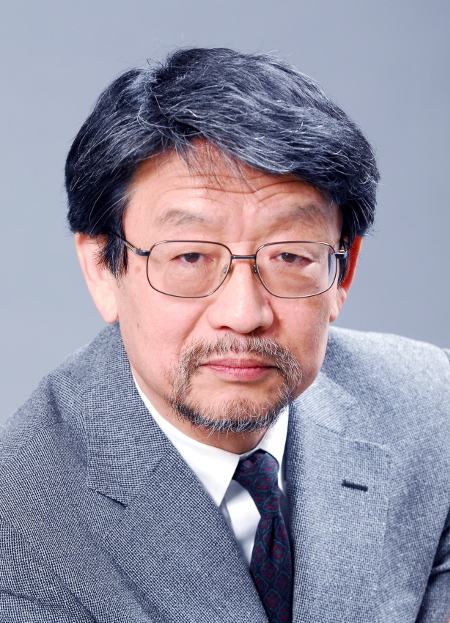 若林正丈现为早稻田大学政治经济学术院教授丶早稻田大学台湾研究所所长。1949年生於长野县长野市,1972年毕业於东京大学教养学部,1974年毕业於东京大学社会学研究所硕士班,1977年修毕东京大学社会学研究所博士班学分,1985年取得东京大学社会学博士学位。1978年~1986年历任东京大学教养学部助手丶副教授丶同大学大学院总合文化研究科副教授丶同研究科教授,1985~86年担任日本外务省驻香港总领事馆专门调查员,2010年起担任早稻田大学政治经济研究院教授,2013~14年担任早稻田大学台湾研究所代理所长,2014年起接任同研究所所长。专长为台湾近现代史丶现代台湾政治丶台湾的认同政治。
若林正丈现为早稻田大学政治经济学术院教授丶早稻田大学台湾研究所所长。1949年生於长野县长野市,1972年毕业於东京大学教养学部,1974年毕业於东京大学社会学研究所硕士班,1977年修毕东京大学社会学研究所博士班学分,1985年取得东京大学社会学博士学位。1978年~1986年历任东京大学教养学部助手丶副教授丶同大学大学院总合文化研究科副教授丶同研究科教授,1985~86年担任日本外务省驻香港总领事馆专门调查员,2010年起担任早稻田大学政治经济研究院教授,2013~14年担任早稻田大学台湾研究所代理所长,2014年起接任同研究所所长。专长为台湾近现代史丶现代台湾政治丶台湾的认同政治。Full Text
簡体字 / 正體字 / English摘要:
在民进党於1986年成立之前,台湾的政党政治史之中,有一群被称为“党外”的人士,他们透过选举与出版杂志对抗国民党的一党独裁统治而为人所知。“党外”的原意是指国民党的外部,但根据过去的研究,1970年代“党外”人士与支持者之间逐渐建立了一种“政治团结”,“党外”被认为是在这个过程之中从一个普通名词成为政治团体名称的专有名词。“党外”成为专有名词的时期正是台湾反对运动的黎明期,而康宁祥对於这个“政治团结”的建立有非常大的贡献,本文的目的,就是透过近年刚出版且内容十分厚实的康宁祥回忆录丶笔者进行的访谈,分析康宁祥崛起的过程。康宁祥出身於台北的万华,由於万华保有着相当深厚的台湾在地生活文化,使其在成长过程之中培养出其本土性格;康宁祥没有加入国民党,反而因为直接与郭国基等反对派政治人物接触而培养出出其政治性格;再加上康宁祥不只是台湾史,甚至国际情势都可以用台语进行说明,得以建立了新的草根性格。本文将焦点放在获得这些性格的康宁祥的“身体”,主张康宁祥亲身投入1960年代末到70年代初期的台北选举政治时,他的“身体”成功的扮演了酝酿“政治团结感”的政治触媒。
摘要:
在民進黨於1986年成立之前,台灣的政黨政治史之中,有一群被稱為「黨外」的人士,他們透過選舉與出版雜誌對抗國民黨的一黨獨裁統治而為人所知。「黨外」的原意是指國民黨的外部,但根據過去的研究,1970年代「黨外」人士與支持者之間逐漸建立了一種「政治團結」,「黨外」被認為是在這個過程之中從一個普通名詞成為政治團體名稱的專有名詞。「黨外」成為專有名詞的時期正是台灣反對運動的黎明期,而康寧祥對於這個「政治團結」的建立有非常大的貢獻,本文的目的,就是透過近年剛出版且內容十分厚實的康寧祥回憶錄、筆者進行的訪談,分析康寧祥崛起的過程。康寧祥出身於台北的萬華,由於萬華保有著相當深厚的台灣在地生活文化,使其在成長過程之中培養出其本土性格;康寧祥沒有加入國民黨,反而因為直接與郭國基等反對派政治人物接觸而培養出出其政治性格;再加上康寧祥不只是台灣史,甚至國際情勢都可以用台語進行說明,得以建立了新的草根性格。本文將焦點放在獲得這些性格的康寧祥的「身體」,主張康寧祥親身投入1960年代末到70年代初期的台北選舉政治時,他的「身體」成功的扮演了醞釀「政治團結感」的政治觸媒。
Abstract:
The literature on the history of party politics in Taiwan has provided ample evidence that prior to the birth of the Democratic Progressive Party (DPP), there was a group of "Tangwai" (黨外) politicians and political activists who were opposed to the Kuomintang (KMT, the Chinese Nationalist Party)'s single-party rule through elections and journal publications. Previous research indicates that during the 1970s these activists and their supporters strengthened solidarity so that their activity "outside the KMT " became a more institutionalized group later called "Tangwai" Using recently-published memoirs and my own interviews, I explore the rise of Kang Ning-hsiang (康寧祥), who made significant contributions to the rise of the opposition movement in the early days. In addition to highlighting two aspects to explain Kang's rise: (1) his personal upbringing that took place in the traditional Wanhua district (萬華) of Taipei; and (2) his political upbringing that was strongly affected by senior opposition politicians such as Koeh Kok-ki (郭國基), I show that through these experiences Kang acquired an extraordinary ‘grass-root” political persona that allowed him to eloquently discuss, in Taiwanese, various topics from Taiwanese history to international affairs to generate mass support. I argue that in the late 1960s through the early 1970s Kang's political persona played a critical role in bringing like-minded politicians and activists together to establish a formal opposition party.